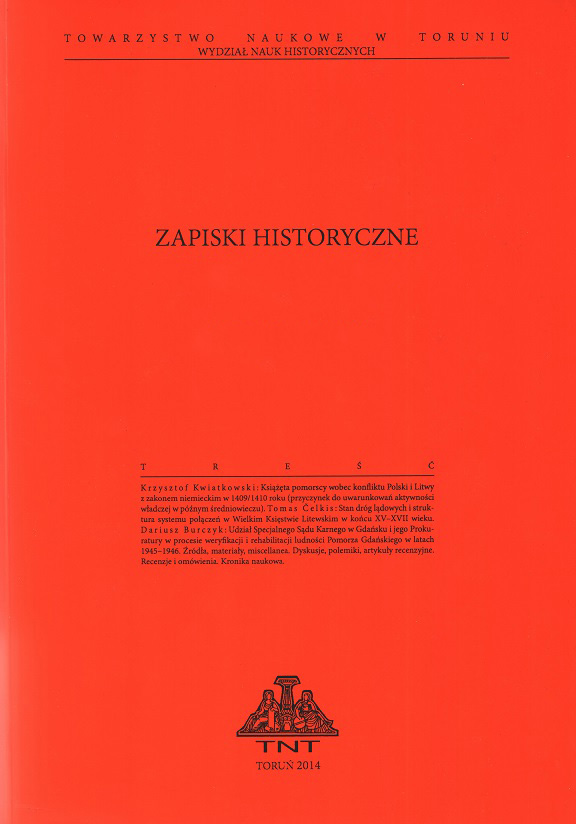Pamięć o tumulcie toruńskim (1724) w polskiej dziewiętnastowiecznej pieśni ludowej
Memory of the Tumult of Toruń (1724) in a Polish Nineteenth-Century Folk Song
Vision of the World – Propaganda – Piety and Moral Values
Author(s): Łukasz KożuchowskiSubject(s): Cultural history, History of Church(es), History of ideas, Oral history, 18th Century, 19th Century, History of Religion
Published by: Towarzystwo Naukowe w Toruniu
Keywords: peasants; folk songs; Protestants; Catholics; memory; piety; propaganda
Summary/Abstract: The subject of the article is an analysis of a nineteenth-century folk song originating from Lesser Poland and the region of Kielce, which describes the events of the Tumult of Toruń (1724). The author used the historical method (factual analysis), anthropological method (theories of memory and orality) and discourse analysis (a written text as a reflection of mentality) to focus on three main issues. The first one is a polemic with the previous opinions of researchers, who argued that the folk song faithfully represents the events of the riots in Toruń (Thorn). In fact, it seems to be more of a propaganda text. It is impossible to determine precisely the place and time it was created, however, it seems that its author was a clergyman who wanted to convey his vision of the Tumult to the lower social strata. The song presents the community of Toruń as divided into two hostile camps, namely aggressive Protestants and pious Catholics. The article embedded the images of both sides in broader contexts of the German-Protestant stereotype and religious polemics in the Polish-Lithuanian Commonwealth. The last part of the text is an attempt to answer the question why this particular song was internalized by the common people. The interest in the Tumult of Toruń could result from its sensational character, the fact that it was very well fitted to folk culture, and the possibility to derive satisfaction from the course of this event. The article ends with the presentation of folk songs as an interesting research material for historians, cultural anthropologists and scholars conducting interdisciplinary memory studies.
Journal: Zapiski Historyczne
- Issue Year: 85/2020
- Issue No: 2
- Page Range: 133-155
- Page Count: 23
- Language: Polish

